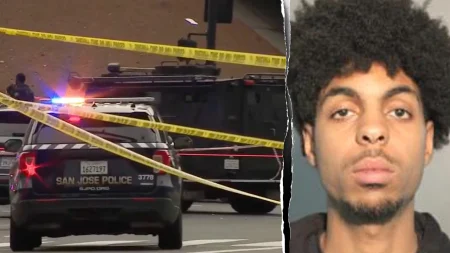The Critical Importance of an International Stabilization Force in Gaza
The Biden administration currently faces one of its most significant foreign policy challenges: establishing lasting stability in Gaza after the devastating Israel-Hamas conflict. At the heart of this complex diplomatic puzzle lies a crucial piece that cannot be overlooked – an international stabilization force. Washington must make this a central priority in its Middle East strategy, as such a force represents the linchpin that could hold together any viable post-conflict solution for the region.
The current humanitarian crisis in Gaza demands immediate attention, with hundreds of thousands of civilians displaced, critical infrastructure destroyed, and basic services collapsed. Without a stabilization force to maintain order and security during reconstruction, even the most well-intentioned aid efforts risk failure. American leadership is essential in building a coalition of willing nations – possibly including European allies, moderate Arab states, and others with diplomatic stakes in regional stability – to fill this security vacuum. This isn’t merely about deploying troops; it’s about creating conditions where Palestinians can rebuild their lives while Israelis feel secure from future attacks, breaking the devastating cycle of violence that has trapped both populations.
Historically, international forces have played crucial roles in post-conflict settings from the Balkans to Lebanon, though with varying degrees of success. What makes the Gaza situation particularly challenging is the deep-seated mistrust between parties and the competing narratives that have long defined this conflict. Yet this difficulty only underscores why American diplomatic weight is necessary. Washington must leverage its relationships with both Israel and Arab states to define a clear mandate for such a force – one that respects Israeli security concerns while creating space for Palestinian governance that isn’t dominated by extremist elements. This requires delicate balancing but represents the only practical path toward stability.
Critics might argue that previous peacekeeping efforts in the region have struggled, or that neither Israel nor Hamas would accept such a presence. These concerns are valid but not insurmountable. The alternative – allowing Gaza to remain in chaos or expecting Israeli forces to maintain indefinite control – would likely perpetuate violence and suffering. A carefully constructed international presence with American diplomatic backing could provide the transitional security needed while longer-term political solutions are developed. Washington’s role would be to design a force with sufficient authority and resources to be effective, while ensuring it doesn’t become either a target or an indefinite placeholder preventing necessary political progress.
The economic dimension cannot be separated from security considerations. Gaza’s reconstruction will require billions in international aid, but donors will rightfully hesitate without assurance that their investments won’t be destroyed in another round of fighting. A stabilization force creates the security umbrella under which economic revival becomes possible. American diplomats should work to connect security guarantees with economic incentives, potentially including special economic zones, port development, and infrastructure projects that create tangible benefits for Gaza’s population. This economic-security nexus represents the practical foundation upon which more ambitious political discussions might eventually build.
Ultimately, Washington’s commitment to establishing an international stabilization force for Gaza isn’t just about addressing the immediate crisis – it’s about creating preconditions for a more hopeful future in one of the world’s most troubled regions. The American role should be to maintain focus on this priority despite inevitable setbacks and competing global demands. Success would demonstrate that patient, principled American leadership can still help solve seemingly intractable problems. Failure to secure such a force, conversely, risks condemning Israelis and Palestinians to further cycles of violence while diminishing America’s standing as an effective mediator. For all these reasons, an international stabilization force isn’t merely one option among many – it’s the essential foundation upon which any lasting resolution must be built.










